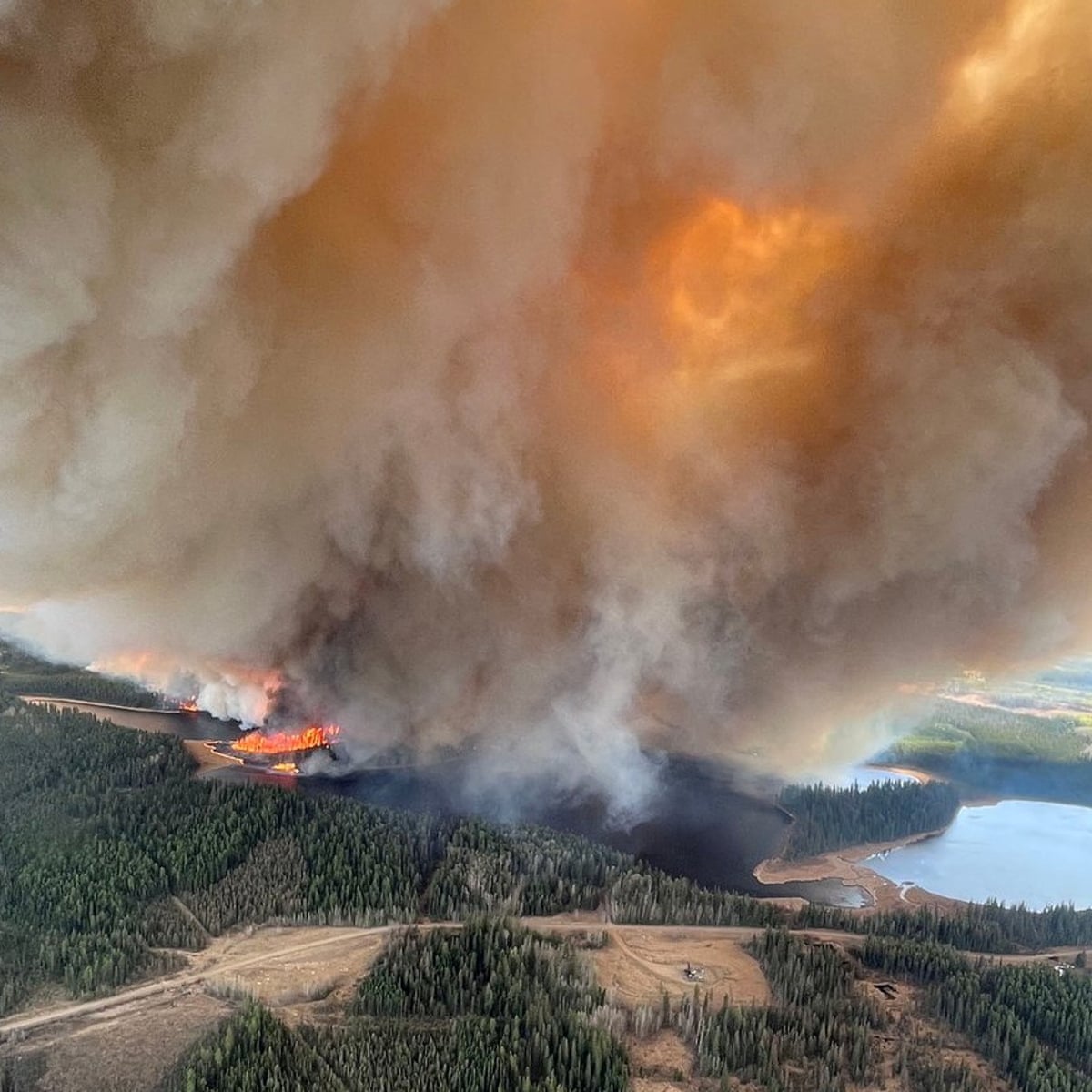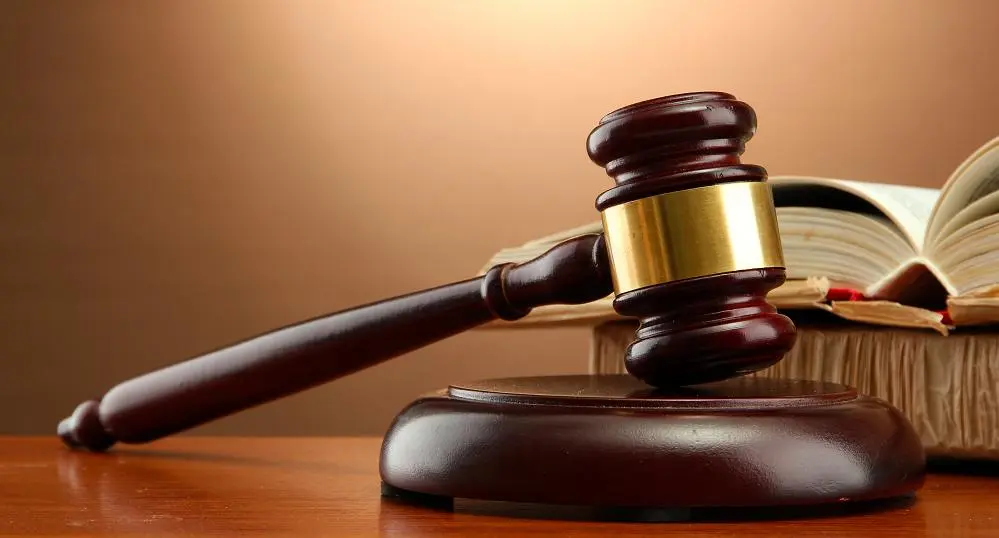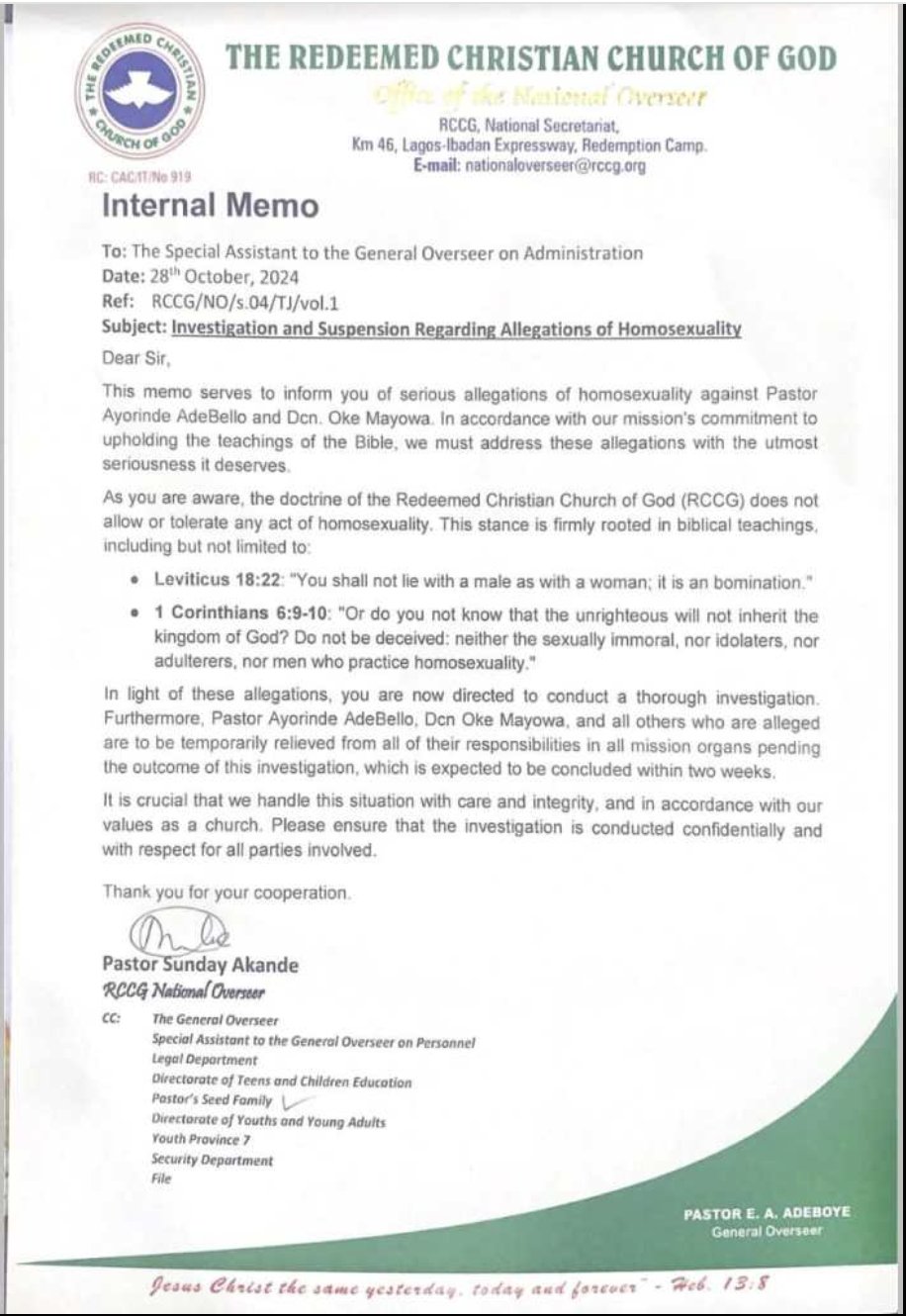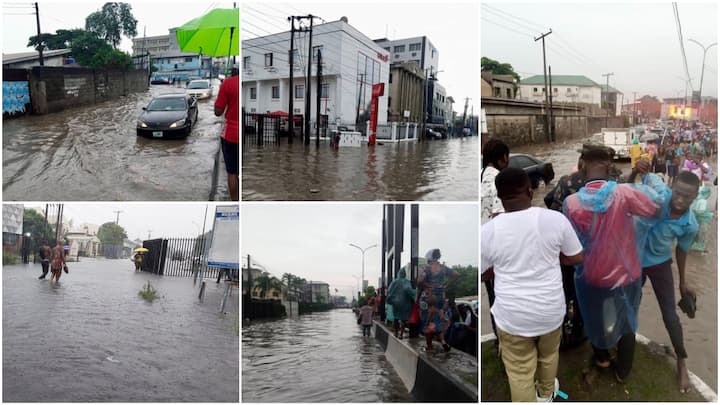
On Thursday, authorities once again issued warnings to residents in the eastern United States, urging them to remain indoors and minimize or refrain from engaging in outdoor activities.
Purple, the color indicating the most severe conditions on air quality maps, represents a dense and perilous haze that is significantly disrupting the daily lives of millions of individuals in the United States and Canada. This haze has obscured skylines and transformed the sky into an orange hue. Unfortunately, due to unyielding weather systems, the thick smoky blanket generated by wildfires in Quebec and Nova Scotia will likely persist until Thursday and possibly extend into the weekend. Consequently, people can anticipate at least one more day, if not longer, of a dystopian-like situation that has forced sports players off fields, actors off Broadway stages, caused numerous flight delays, and prompted a resurgence in mask usage and remote work. These circumstances have also raised concerns about the potential health consequences associated with prolonged exposure to such poor air quality.
According to Bryan Ramsey, a meteorologist from the U.S. National Weather Service, the weather system responsible for the widespread smoke across Canada and the United States is expected to persist for the next few days. This system, characterized by a low-pressure system over Maine and Nova Scotia, is likely to linger, keeping conditions unfavorable. Ramsey noted that the unhealthy air quality is expected to persist until there is a shift in wind direction or until the fires are extinguished. Given the magnitude of the ongoing fires, which are projected to last for weeks, the key factor determining improvement will be a change in wind patterns.
Officials in the eastern United States have issued warnings to residents to remain indoors and limit or avoid outdoor activities once again on Thursday. "Code Red" air quality alerts have been extended for a third consecutive day in certain areas, as forecasts indicate that winds will continue to carry smoke-filled air southward.
Mayor Muriel Bowser of Washington, D.C., issued an order for schools to cancel outdoor recess, sports activities, and field trips on Thursday. In suburban Philadelphia, authorities established an emergency shelter to provide refuge for individuals residing outdoors, allowing them to escape from the smoky haze.
Governor Kathy Hochul of New York announced that the state would be distributing one million N95 masks, similar to those widely used during the peak of the COVID-19 pandemic, at various state facilities. This includes making 400,000 masks available in New York City. Additionally, Hochul strongly advised residents to remain indoors and refrain from unnecessary outings.
Hochul emphasized the importance of avoiding activities such as taking walks or pushing strollers outside, emphasizing that it is currently unsafe to do so.
As of Wednesday, officials reported that there has not been an increase in 911 calls related to respiratory problems and cardiac arrests in New York City, suggesting that the message about the smoky conditions may be reaching the public.
In Canada, over 400 wildfires are currently burning, leading to the displacement of 20,000 individuals. The United States has provided assistance by sending over 600 firefighters and equipment to support firefighting efforts in Canada. Additionally, other countries are also offering their assistance.
Canadian Prime Minister Justin Trudeau and President Joe Biden had a phone conversation on Wednesday. Trudeau's office stated that he expressed gratitude to Biden for the support received, and both leaders acknowledged the importance of collaborative action in addressing the severe impacts of climate change.
Officials in Canada are expressing concerns that the ongoing wildfire season may be the most severe in the country's history. The season began earlier than usual, with dry conditions fueling the rapid spread of fires. While smoke from the blazes has been crossing into the United States since last month, its intensity has increased due to recent wildfires in Quebec. On Wednesday, approximately 100 fires in Quebec were reported to be out of control.
The impact of the smoke has been felt by individuals in various regions. Dr. Ken Strumpf, in a Facebook post from Syracuse, New York, described the sensation of being able to taste the air due to the smoky conditions. In Canada's capital, Ottawa, the smoke was so thick that office towers located across the Ottawa River were barely visible. Yili Ma from Toronto shared that her hiking group had to cancel their planned hike, and she personally decided to forego the beloved summer tradition of dining on restaurant patios, which are usually enjoyed in a nation known for its harsh winters.









Leave a comment